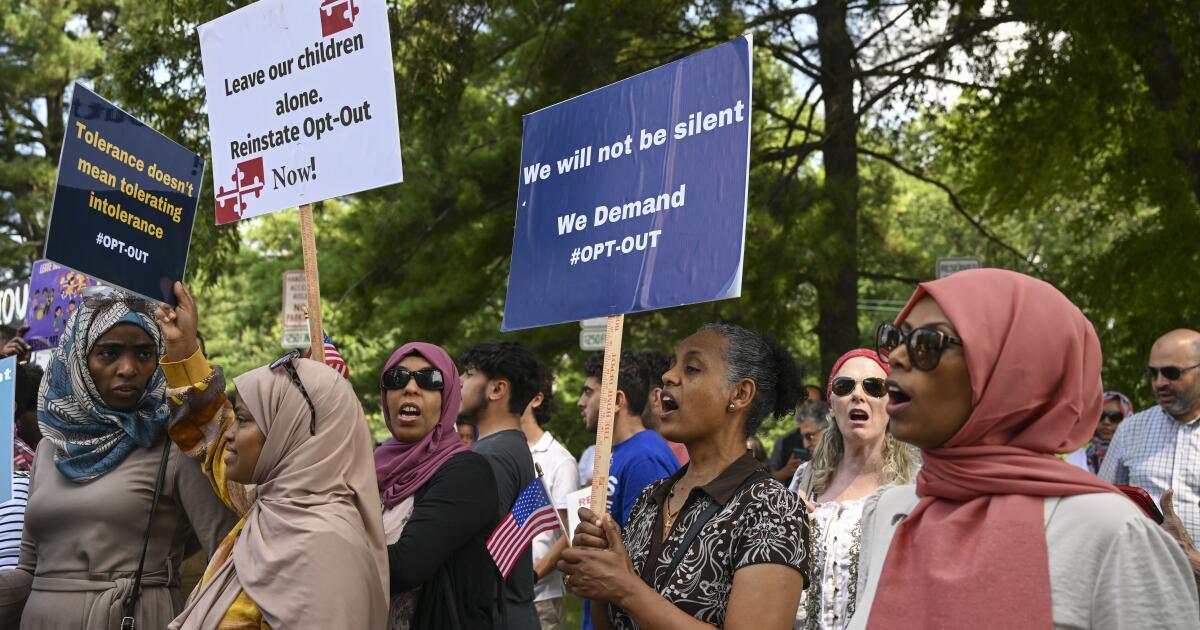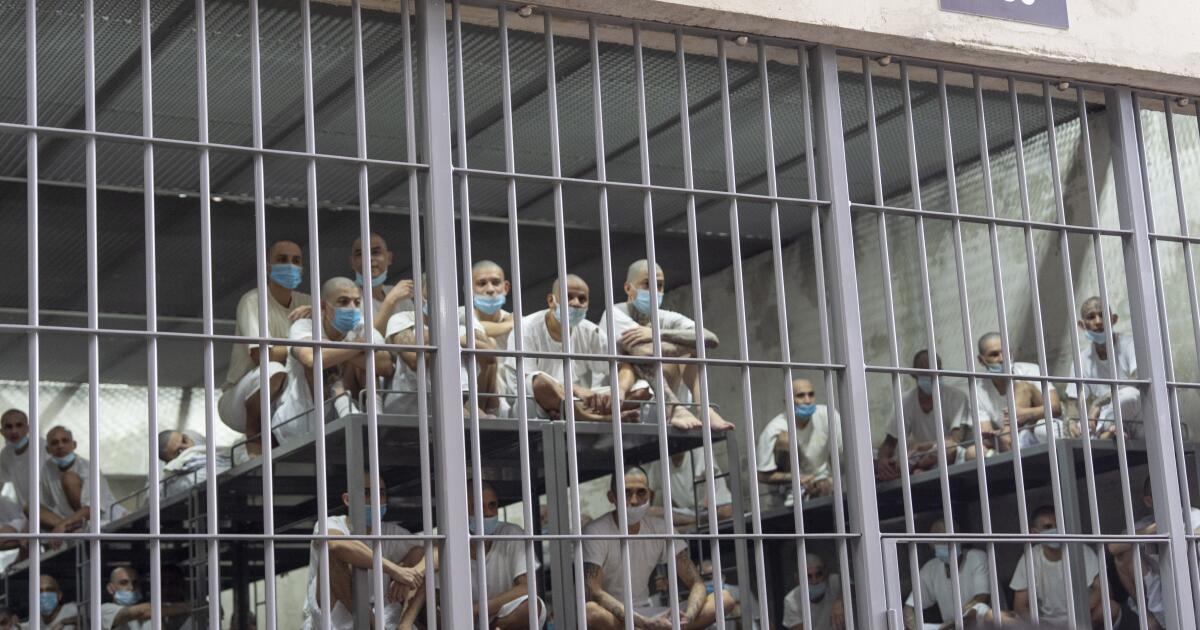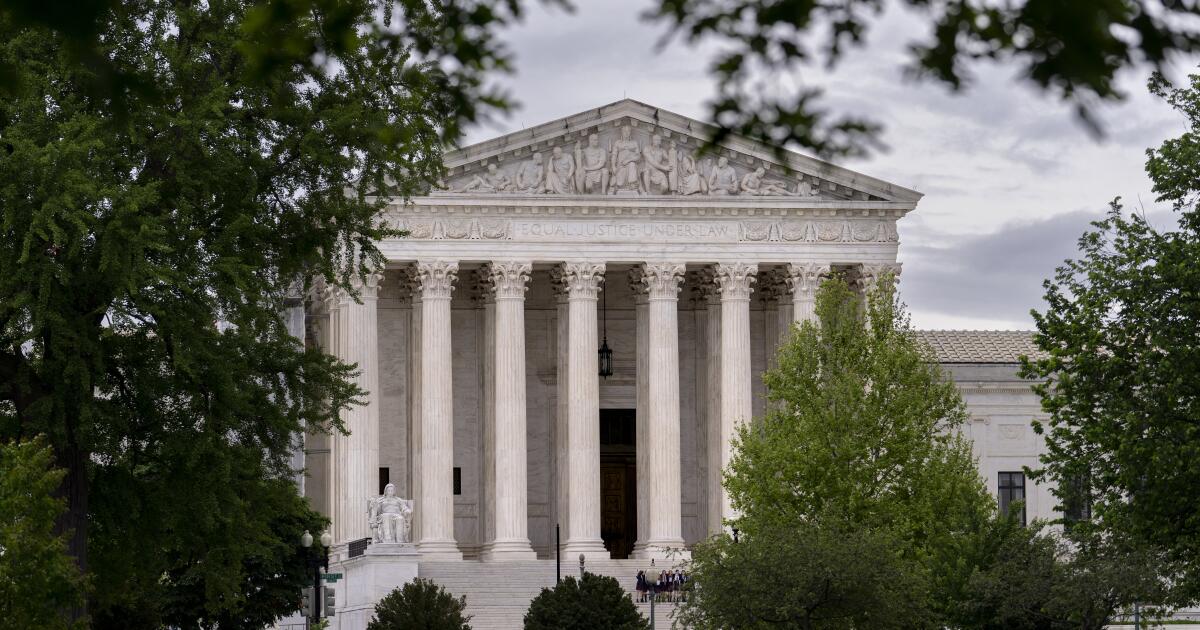Son Heung-min is signing with LAFC for MLS-record transfer fee
LAFC’s signing of South Korean national team captain Son Heung-min appears to be one of those rare acquisitions that checks every box and helps everybody. Not only is it one of the most significant signings in MLS history, but it instantly makes LAFC better while boosting the World Cup hopes of the Korean national team and the profile of Korean soccer in the U.S.
But in few places will the influence of the signing, which is expected to be completed Tuesday, be felt more directly than in Southern California’s Korean community, the largest in the U.S.
“The Korean community has been buzzing ever since rumors of Son Heung-min’s potential move to LAFC began to spread,” said Kyeongjun Kim, a writer with the Korean Daily, the largest Korean-language media outlet in the U.S. “The fact that a player of his caliber is coming to L.A. is monumental event.
“Son’s move to the LAFC is as exciting — if not more so — than when Chan Ho Park and Hyun-Jin Ryu joined the Dodgers.”
Luring Son, 33, away from Tottenham of the English Premier League, where he spent the past 10 seasons, came at a high price. Although financial details of the signing were not announced, a league official with knowledge of the negotiations but not authorized to speak publicly said the transfer fee easily topped the MLS-record $22 million the Atlanta United paid to Middlesbrough in February for the rights to striker Emmanuel Latte Lath.
ESPN, citing unnamed sources, put the price at $26 million, more than LAFC’s total payroll of nearly $22.4 million, which is sixth highest in the league. Yet, strangely, that could still prove to be something of a bargain and represents another signing coup for general manager John Thorrington who, over the past four seasons, has signed Hugo Lloris and Olivier Giroud, players with the most appearances and goals for the French national team, respectively; Giorgio Chiellini and Gareth Bale, captains of the Italian and Welsh national teams, respectively; and Denis Bouanga, who led the MLS in goals in the past two full seasons.
Thorrington didn’t have to break the bank to do any of it.
LAFC earned $10 million from its participation in this summer’s Club World Cup, money it then invested in Son. And despite the massive transfer fee, the team could actually profit financially from the deal since it has long believed a Korean star playing in Los Angeles would more than pay for itself in marketing and sponsorship deals, much the same way the Dodgers have profited off Japan’s Shohei Ohtani.
Kim said that’s a very good bet.
“The passion and influence of Korean and Korean American soccer fans should never be underestimated,” he said, noting that major European clubs with Korean players have begun posting online content in Korean.
“Korean broadcasters,” he predicted, “may seek to acquire broadcasting rights and new business opportunities could emerge. Son’s arrival at LAFC will benefit not only the club but also the league as a whole.”
The influence won’t be limited to the Korean community, however. Son, who was one of the most popular players in the Premier League, speaks English well and has a positive and humble personality, which will make him easy to market across ethnic boundaries.
LAFC tried this once before, signing defender Kim Moon-hwan to much fanfare in 2021. But Kim, who had played his whole life in Korea, never really adapted to Los Angeles and returned home after 13 months, having played in just 28 games in MLS. Homesickness won’t be a problem for Son, who dropped out of high school to join an academy team in Hamburg, Germany, at 16.
Son will become the ninth Korean to play in MLS and the fourth to play this season. That’s a small number for a country that has played in 10 straight World Cups — something the U.S., Italy, the Netherlands and France haven’t done. If he is successful, it could open the way for more Koreans to play in MLS.
“Many in Korea believe Son raised the profile of Korean soccer through his efforts in Europe,” Kim said. “Son’s transfer presents a rare opportunity to boost the visibility of MLS, which has traditionally drawn less attention from Korean fans.”
Then there’s the on-field impact. Son scored more than 120 goals for Tottenham, reaching double digits in goals in eight of his past nine seasons at Tottenham and sharing the EPL Golden Boot with Liverpool’s Mo Salah four years ago. No Asian player had ever done that before, so his addition could go a long way toward reviving a slumbering LAFC offense that has scored more than one goal from the run of play just twice in its last 10 games in all competition heading into Tuesday’s Leagues Cup match with Tigres.
As for the South Korean national team and Son, its captain, the timing of the move to MLS couldn’t be better. The Koreans have already qualified for next summer’s World Cup, which is returning to North America for the first time since 1994, and playing in the U.S. will help Son, a three-time World Cup performer who is second in national team history in goals and third in appearances, adjust to the time, the weather and the travel, all things players complained about during the Club World Cup.
“When Son announced his departure from Tottenham, he mentioned that the 2026 World Cup might be his last,” Kim said. “As the captain, this is a pivotal time for him. I believe he will do everything he can to prepare thoroughly and being at LAFC will help him adapt to the local environment.”
It’s hard to imagine a signing with the potential to be so positive in so many ways. For LAFC and MLS, it looks to be well worth the price.

















